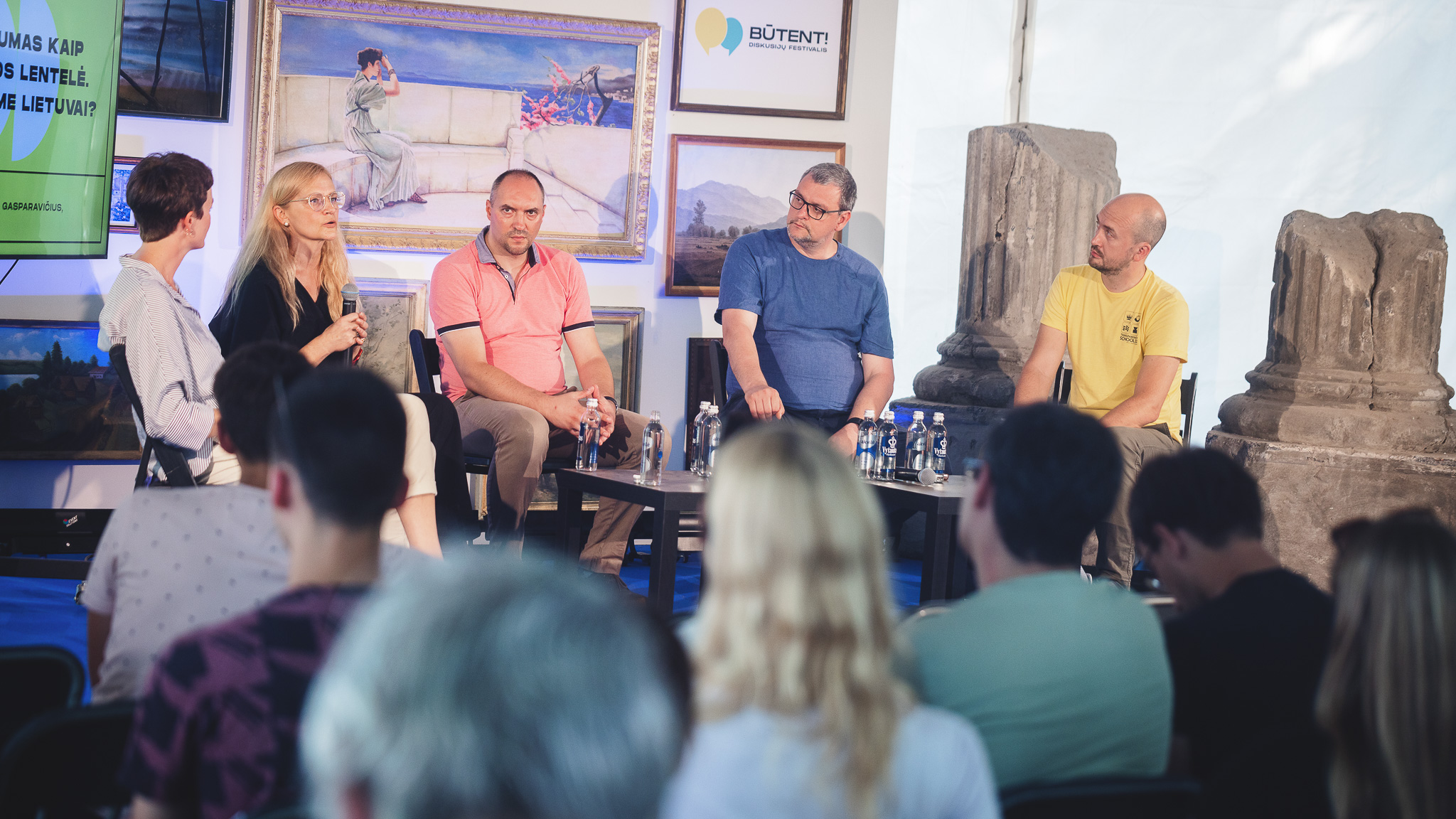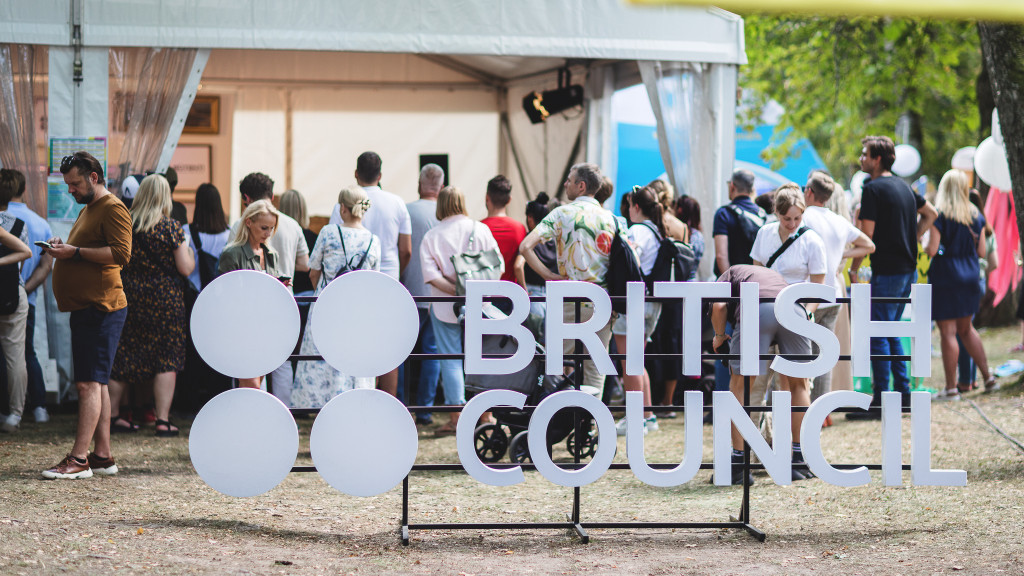 Back
Back

August 26th at the discussion festival “Būtent!”, the head of the DIGIRES association prof. Auksė Balčytienė shared her insights on the topics of public sphere, ethics of digital communication, disinformation and media literacy, while Darius Remeika, a member of the association, an expert in information, psychological and disinformation operations, organized a training on critical thinking and resistance to manipulation.
Ethics of digital communication
We face insults between individuals, organizations and politicians almost every day. This problem was discussed during a discussion on the ethics of public sphere and digital communications held by The Commission of Ethics in the Provision of Information to the Public. The head of the DIGIRES association prof. A. Balčytienė participated in the discussion and shared her insights.
“Looking at the need to develop digital resistance to various communicative disturbances, hatred, attacks, and manipulation of facts, it is important to use various instruments: knowledge about the legal regulation of the digital sphere, news media support and strengthening of professional journalism, as well as media literacy competencies,” says the expert.

Media literacy
The situation of media literacy was discussed in another discussion, which was organized by the British Council in Lithuania, constantly working on media literacy topics – actively supporting the search for expert insights, exchanges, and training.
The biggest threats related to the lack of media literacy, how the rapidly changing informational, technological, geopolitical environment should be viewed, what is being done to develop media literacy, what the situation is and what is missing today, were discussed.
According to prof. A. Balčytienė, researches are constantly conducted, the information environment is monitored, different case studies are analyzed. Many organizations, state institutions, the Lithuanian army, and different NGOs operate in this field. The media also conducts researches, publishes data, notes trends, exposes networks of manipulators. In international studies of media literacy, Lithuania is named as an example of success, and its risks are of medium value.
“This means that inter-institutional cooperation networks are functioning effectively in our country, scientists and practitioners exchange expert knowledge. However, the knowledge of different groups of people is not homogeneous. Therefore, it is important to develop understanding that the public sphere itself is not as open as it seems at first glance – different actors with various ambitions operate in it”, says prof. A. Balčytienė.

Critical thinking and resistance to manipulation
At a time D. Remeika, an expert in information, psychological and disinformation operations, together with the National Coalition of Non-governmental Organisations organized a training for critical thinking and resistance to manipulation.
According to the expert, we are prone to dichotomous thinking, which means that we evaluate things through a black-white prism. Therefore, during the training, he sought to reveal the trap of dichotomous thinking, to show that it is mostly an unconscious tendency of thinking that makes everyday life easier, but at the same time it is also dangerous.
He also presented an exercise that aims to show to the audience that reality is not “black and white”, it is more or less gray. This grayness, according to the expert, is a sign of critical thinking. “Conscious thinking about thinking is one of the golden rules of critical thinking”, D. Remeika says.
